#70s tv miniseries
Photo

Salem’s Lot (1979)
#salem's lot gif#70s movies#70s horror#geoffrey lewis#tobe hooper#stephen king#70s tv miniseries#seventies#1979#gif#chronoscaph gif
94 notes
·
View notes
Text
I cannot recommend enough that you find a book or book series that's had many different adaptations. Read all of it. And then consume every single adaptation humanly possible. Let it consume you. Become an expert on the characters and the themes and every possible way to interpret them, even the bad ones. Find yourself tracking down obscure radio dramatisations from the 70s that most people have never heard of and TV miniseries from the 60s in languages you don't even speak and failed pilots for TV shows that neer even made it to series. Let it consume you further. Free yourself from the constraints of "canon" and grow to see the characters and stories as more vague multiversal concepts. The more you consume the more you find to consume. If you fall far enough down a rabbit hole you'll find put it's bottomless and you're never getting out. The more you consume the more it consumes you.
Builds character.
62 notes
·
View notes
Text
THIS DAY IN GAY HISTORY
based on: The White Crane Institute's 'Gay Wisdom', Gay Birthdays, Gay For Today, Famous GLBT, glbt-Gay Encylopedia, Today in Gay History, Wikipedia, and more … March 31
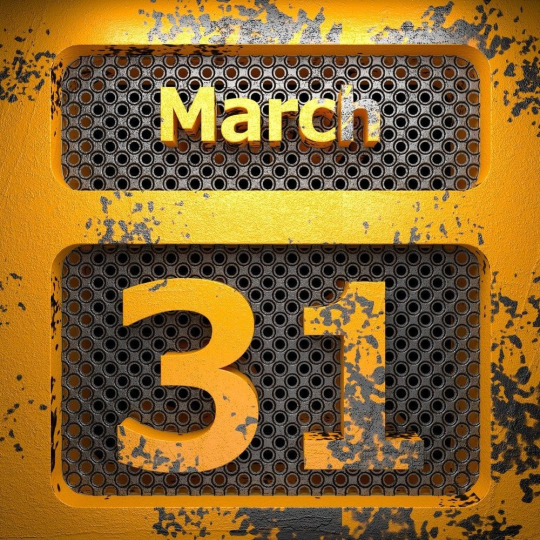


1872 – On this date the Russian choreographer Sergei Diaghilev was born (d.1929). A Russian art critic, patron, ballet impresario and founder of the Ballets Russes from which many famous dancers and choreographers would later arise.
Diaghilev engaged in a number of homosexual relationships. His first important affair was with Dima Filosofov, his cousin, when they were both little more than adolescents; his second with Vaslav Nijinsky, who had already had a homosexual liaison with a wealthy aristocrat, partly in order to help support his mother, sister, and mentally disabled brother (his father had deserted the family). Later affairs of Diaghilev were with Boris Kochno, who served as his secretary from 1921 until the end of his life, and with Anton Dolin, the American dancer. Diaghilev had a close platonic relationship with two women, Misia Sert and the dancer Tamara Karsavina, either of whom he said he would like to have married
One cannot underestimate the influence of Diaghilev's Ballets Russes on the development of 20th century art. But the importance of his sexuality to Diaghelev's creative art is sometimes overlooked. Had he not been a gay man, had he not attracted to his cause the great gay writers, dancers, and artists of the day, the stream of 20th century art may have flowed in an entirely different direction. As Martin Green wrote in Children of the Sun,
"He made the dancer Nijinsky first his lover and then his choreographer, slyly displacing Michel Fokine and inspiring Nijinsky to become the company's chief ballet-creator. Diaghilev's superb taste...was made manifest in this new Nijinksy, the choreographer, and in the ballets he created. These works of art were the children of Diaghilev's sexual passion. The same thing happened later with Leonide Massine and Serge Lifar...These men created ballets under the spell of Diaghilev's passion and he created through them."

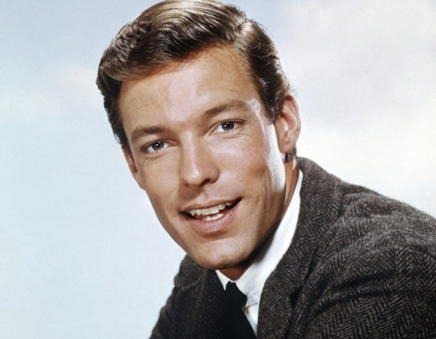
1934 – Richard Chamberlain, American actor, born; an American actor of stage and screen who became a teen idol in the title role of the television show Dr. Kildare (1961-1966) and the miniseries The Thornbirds.
Born in Los Angeles, he decided to pursue acting as a career. However, he was drafted into the army for two years, but enrolled in acting classes on his release, where he met his first same-sex love - but fearing the attitudes of the time, the late 1950s, the pair kept their year-long affair secret.
He appeared in his first film in 1960, and the following year won the title role in TV drama Dr Kildare, which ran for five successful years and made Chamberlain a household name and a romantic idol.
He made a number of successful and critically acclaimed movies in the 1970s - Ken Russell's The Music Lovers (1971), proto disaster epic The Towering Inferno (1974), The Swarm (1974) and The Three Musketeers (1974). In the late-70s and 1980s Chamberlain returned to TV and his career thrived in the then-new mini-series genre - Centennial (1978), Shogun (1980) and his best known role as Father Ralph de Bricassart in Colleen McCullough's The Thorn Birds (1983) - a TV phenonemon at the time. When the mini-series fell out of favour, he returned to the theatre where he continues to work.
Chamberlain was romantically involved with television actor Wesley Eure in the early 1970s. In 1977, he met actor-writer-producer Martin Rabbett, with whom he began a long-term relationship. This led to a civil union in the state of Hawaii, where the couple resided from 1986 to 2010 and during which time Chamberlain legally adopted Rabbett to protect his future estate. Rabbett and Chamberlain starred together in, among others, Allan Quatermain and the Lost City of Gold, in which they played brothers Allan and Robeson Quatermain. In the spring of 2010 Chamberlain returned to Los Angeles to pursue career opportunities, leaving Rabbett in Hawaii, at least temporarily.
Chamberlain was outed, at the age of 55, by the French women's magazine Nous Deux in December 1989, but it was not until 2003 that he confirmed his homosexuality, in his autobiography, Shattered Love which describes how he felt obliged to hide his sexuality in order to have an acting career, and detailed affairs with dancer Rudolph Nureyev and actor Anthony Perkins.
Since his coming out Chamberlain has made occasional guest appearances on TV shows such as Will & Grace, Nip/Tuck and Desperate Housewives, usually bringing a new knowingness or just playing gay as he was unable to do for so many years.
In an interview with The Advocate in 2010 promoting his role in ABC's Brothers & Sisters Chamberlain controversially said,
'For an actor to be working [at all] is a kind of miracle, because most actors aren't, so it's just silly for a working actor to say, "Oh, I don't care if anybody knows I'm gay" - especially if you're a leading man.
'Personally, I wouldn't advise a gay leading man-type actor to come out.'


1961 – American composer and pianist Jake Heggie celebrates his birthday today. Born in West Palm Beach, Florida. Heggie is the composer of the operas Dead Man Walking (2000), The End of the Affair (2004), At The Statue of Venus (2005), and To Hell and Back (2006). He is also the composer of more than 200 art songs as well as chamber and concert works.
Heggie started learning the piano when he was five years old. After spending two years in Paris, he continued his studies at the age of 20 at the University of California, Los Angeles, with the pianist Johana Harris (1912-1995), widow of the composer Roy Harris. They married in 1982 and separated in 1993.
In 1998 he was appointed composer in residence to the San Francisco Opera, where his first opera, Dead Man Walking, was first performed in 2000. With a libretto by Terrence McNally and a production by director Joe Mantello, the opera was extensively acclaimed and it ran for two extra performances due to popularity. It has since been seen in 15 international productions. In 2007 alone, Dead Man Walking received more than 50 performances. His second opera, The End of the Affair, was premiered in 2004 at the Houston Grand Opera.
In 2005, Heggie collaborated again with Terrence McNally to create At the Statue of Venus, which opened in Denver. In 2006, he debuted To Hell and Back (libretto by Gene Scheer) in November 2006.
On 29 February 2008, his opera Last Acts, with a libretto by Gene Scheer based on a play by Terrence McNally, opened at the Houston Grand Opera, which commissioned the work in association with the San Francisco Opera and Cal Performances. Last Acts was its working title; it will in future be known as Three Decembers.
On April 30, 2010, Heggie premiered his most recent opera, Moby-Dick (libretto by Gene Scheer) at The Dallas Opera.
Heggie married his partner of eight years, singer aand actor Curt Branom, in October 2008.

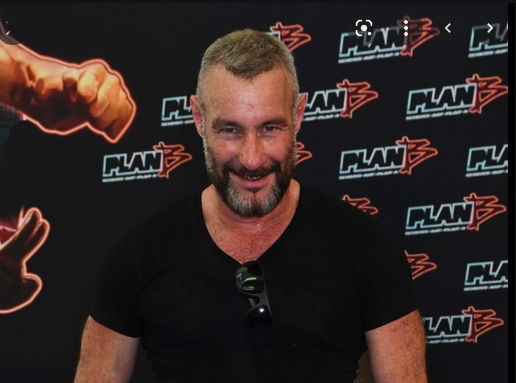
1963 – Laurent Daniels, born Laurent Peter Holzamer in Mainz, is a German actor who lives in Berlin.
He is the grandson of former ZDF - director Karl Holzamer.
In 1991, he and David Wilms presented the gay magazine Andersrum, which was broadcast on the local Berlin broadcaster FAB.
From 1997 to 2000 Daniels played the role of homosexual Philip Krüger in Good Times, Bad Times. He also played in the spin-off Großstadtträume in 2000 and tried his hand at singing for a while.
From August 21, 2006 to February 10, 2007 he played the role of Volker Möllenkamp in the telenovela Butterflies in the Belly. In 2007 he appeared in the last episode of Adelheid and her murderers ( Mord à la mode ).
In 2014 he stood in front of the camera for the German production Plan B: Scheiss auf Plan A , which opened in German cinemas on June 8, 2017.

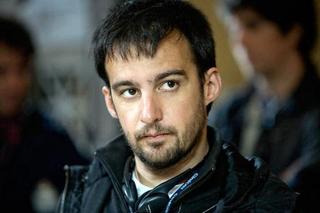
1972 – Spanish filmmaker Alejandro Amenábar was born in Santiago, Chile. In addition to writing and directing his own films, Amenábar has maintained a notable career as a composer of film scores, including the Goya Awards-nominated score for José Luis Cuerda's La lengua de las mariposas.
Amenábar was awarded the Grand Prix of the Jury at the International Venice Film Festival in 2004 for Mar adentro ("The Sea Inside") starring Javier Bardem, and in February 2005 the same film won the Academy Award for Best Foreign Language Film.
In February 2004, Amenábar came out to the Spanish gay magazine Shangay Express.
In 2008 Amenábar shot an epic film called Agora which he wrote with Mateo Gill. Set in Roman Egypt, the film is based on the life of philosopher and mathematician Hypatia of Alexandria.
On 18 July 2015, he married David Blanco.


2014 – Model and activist Geena Rocero comes out as transgender during her TED talk filmed in Vancouver on the Transgender Day of Visibility. She is a Filipino American supermodel, TED speaker, and transgender advocate based in New York City. Rocero is the founder of Gender Proud, an advocacy and aid organization that stands up for the right of transgender people worldwide to gain "self-identify with the fewest possible barriers".


TODAY'S GAY WISDOM
Edward FitzGerald's translation of The Rubaiyat of Omar Khayyam, verses 1 - 12 (of 75):
1
Awake! for Morning in the Bowl of Night
Has flung the Stone that puts the Stars to Flight:
And Lo! the Hunter of the East has caught
The Sultan's Turret in a Noose of Light.
2
Dreaming when Dawn's Left Hand was in the Sky
I heard a Voice within the Tavern cry,
Awake, my Little ones, and fill the Cup
Before Life's Liquor in its Cup be dry.
3
And, as the Cock crew, those who stood before
The Tavern shouted--Open then the Door.
You know how little while we have to stay,
And, once departed, may return no more.
4
Now the New Year reviving old Desires,
The thoughtful Soul to Solitude retires,
Where the WHITE HAND OF MOSES on the Bough
Puts out, and Jesus from the Ground suspires.
5
Iram indeed is gone with all its Rose,
And Jamshyd's Sev'n-ring'd Cup where no one knows;
But still the Vine her ancient Ruby yields,
And still a Garden by the Water blows.
6
And David's Lips are lock't; but in divine
High piping Pelevi, with Wine! Wine! Wine!
Red Wine!--the Nightingale cries to the Rose
That yellow Cheek of hers to'incarnadine.
7
Come, fill the Cup, and in the Fire of Spring
The Winter Garment of Repentance fling:
The Bird of Time has but a little way
To fly--and Lo! the Bird is on the Wing.
8
And look--a thousand Blossoms with the Day
Woke--and a thousand scatter'd into Clay:
And this first Summer Month that brings the Rose
Shall take Jamshyd and Kaikobad away.
9
But come with old Khayyam, and leave the Lot
Of Kaikobad and Kaikhosru forgot:
Let Rustum lay about him as he will,
Or Hatim Tai cry Supper--heed them not.
10
With me along some Strip of Herbage strown
That just divides the desert from the sown,
Where name of Slave and Sultan scarce is known,
And pity Sultan Mahmud on his Throne.
11
Here with a Loaf of Bread beneath the Bough,
A Flask of Wine, a Book of Verse--and Thou
Beside me singing in the Wilderness--
And Wilderness is Paradise enow.
12
How sweet is mortal Sovranty!--think some:
Others--How blest the Paradise to come!
Ah, take the Cash in hand and waive the Rest;
Oh, the brave Music of a distant Drum!


11 notes
·
View notes
Text
RIP John Jakes, Pulp and Fantasy Author
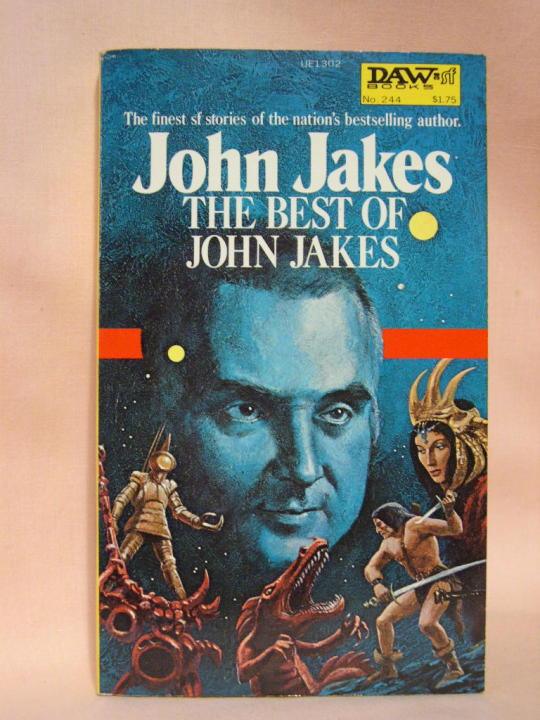
A man who’s career began in pulp scifi, then was one of the greatest group of fantasy fans turned authors, and who finally ended it as one of the most commercially successful “men’s adventure” paperback novels of the 1970s, John Jakes died at 90 last week. What a life! He started his career in scifi pulp of the 1950s, switching to sword and sorcery action in the 60s, and finally, ending the 70s as one of the top selling authors of the decade. In one guy’s life, you can see the ebb and flow of trends in men’s adventure fiction over the decades.
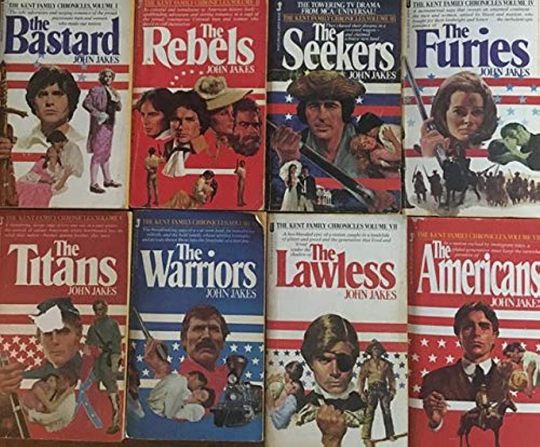
Let’s start the John Jakes story at the end, and then work our way back. Does this book series above look familiar to you at all?
If you have grandparents and they live in America, I 100% guarantee the Kent Family Chronicles (also called the Bicentennial Series) are in your Mee Maw and Pep Pep’s house right now. You probably handled them while visiting their house and went through their bookshelves as a child, right next to their Reader’s Digest condensed books, Tai-Pan and Shogun by James Clavell, copies of the endless sequels to Lonesome Dove, and old TV Guides they still have for some reason next to the backgammon set. If your grandparents are no longer with us, you probably found this series when selling their possessions after death. That’s because these things sold in the millions, back when the surest way to make money in writing was to write melodramatic, intergenerational family sagas of grandiose sweep set around historical events. Weighty family sagas, ones critics call bloated and self important instead of “epic,” were a major part of 70s fiction as they were four quadrant hits: men liked them for war, action, and history (every guy at some point must choose between being a civil war guy, or World War II guy) and ladies loved them for their romance and melodramatic love triangles (after all, the Ur-example of this kind of book is Margaret Mitchell’s Gone With the Wind). This was the kind of thing turned into TV event miniseries, and ably lampooned in the hilarious “Spoils of Babylon” series with Kristen Wiig and Toby McGwire, which, decades after the fact, did to this genre what Airplane! did for the formerly prolific airport disaster movie: it torpedoed it forever by making it impossible to take seriously.
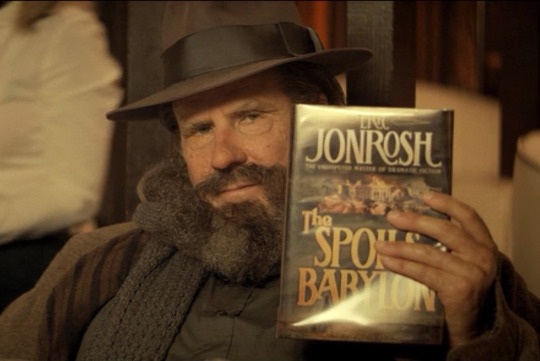
This genre eventually went away because men stopped being reliable book buyers and book readers in the 1990s (or at least, were no longer marketed to as an audience), Lonesome Dove’s insane popularity was the last gasp of this audience. I’ve said this before, but men and boys no longer reading is the single most under remarked on social problem we have. “YA books” now basically mean “Girl Books.”

John Jakes did not suddenly come out of nowhere to write smash hit bestsellers set around a family during the American Revolution. He came from one of the weirdest places imaginable: a crony of L. Sprague de Camp and Lin Carter in fantasy and weird tales fanzines like Amra, he was one of the original “Gang of Eight,” people drawn from fantasy and horror fandom to become pro-writers now that fantasy fiction had a home at Ballantine Publishing, just before the rise of Lord of the Rings and the paperback pulp boom, which is an incredible case of being in the right place at the right time. There, John Jakes, a fanzine contributor and ERB fan, wrote “Brak the Barbarian,” which is amazing as L. Sprague de Camp and Ballantine hadn’t even reprinted the Conan stories yet and Conan was as well known as Jirel of Joiry or Jules de Grandin. Only superfans of pulp knew who that guy was at all, there was no audience for it. He wrote Brak the Barbarian as a superfan, and was lucky the paperback market found him.

The tireless work John Jakes, Lin Carter, L. Sprague de Camp, and the Gang of Eight did in preserving fantasy novelists of the pulp age into the 50s-60s is one of the great historic feats of preservation and keeping fandom flames alive. It’s no exaggeration to say that you know who Conan the Barbarian and HP Lovecraft are right now because of them, fans who kept the flame alive tirelessly and thanklessly in the ultra-rational 50s that had no place for dark horrific fantasy.
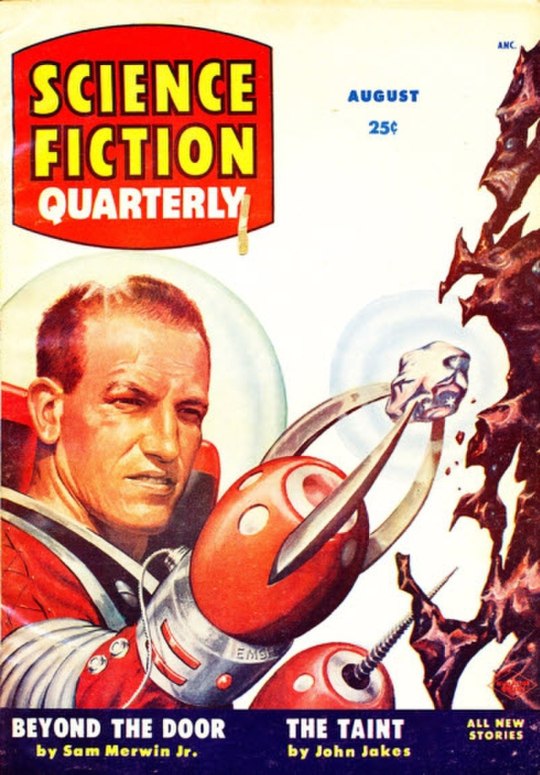
Like his friend in fantasy and pulp fandom, L. Sprague de Camp, John Jakes started as a scifi guy in the endless scifi pulp magazines of the 1950s. Unlike his friend de Camp or Hugh B. Cave, who were full of humor, characterization, and satire, Jakes was often pessimistic, dour, and downbeat, and he disliked to laugh.
It’s shocking to lose someone with a connection to, in one lifetime, the first great group of fantasy fandom, 50s scifi pulp, and 70s men’s adventure. John Jakes’ life spanned all of them.
72 notes
·
View notes
Note
How do you think Dark Shadows would differ if made today? Would it still be the cult classic or is that kind of writing lost to us?
with the disclaimers that I don't think you can set out to make a cult classic, and also I only know as much about the entertainment industry as the next person, and also I don't really think the writing in Dark Shadows is that good, I do think it's an interesting question! I'll do my best.
To start: for me, the lion's share of the show's enduring appeal is in its earnestness, and part of that is the palpable shoestring budget. things like flubbed lines, camera man and mic shadows in the shot, and other genuine mistakes are part of what you watch the show for, they do not detract but add to the experience. this contributes a similar sense of watching live theatre (paired with most of the core cast being new york theatrically trained and bringing that acting style with them) because you know you're seeing something usually done in one take, where the mistakes bleed through, where who the actors are as people is alongside them on the stage. they flub, and recover, and this is part of the story: so too do the Collinses make vast mistakes, and go on. it is an imperfect world riddled with faults.
This is not something you're going to get in the current media landscape from one of the big networks like ABC; I find it almost impossible to imagine a daytime show being produced with the kind of natural errors Dark Shadows contains. To capture that same kind of poor theatre troup earnestness you would have better success as either a) actual serial theatre, b) a webseries / tiktok series / etc, c) a low-budget independent or college tv station, or d) a miniseries, possibly. If a major network took it on and purposefully put those mistakes in, it would not feel the same. I'm a bit bored of the constant insincerity/irony in a lot of 2020's media, and I think it would rapidly veer into that genre of work.
As far as being a daytime serial, specifically, I don't think the current media environment is exactly right: part of the reason they aired a gothic horror soap opera to begin with is it was part of the broader cultural conversation, next to television like Bewitched, The Addams Family, I Dream of Jeanie, The Munsters, The Twilight Zone, etc. American entertainment in the late 60's had a love affair with the occult (with witches, monsters, ghosts, the works) and this permeated broad aspects of arts and culture: The Haunted Mansion opened at Disneyland in 1969, Monster Mash was number 1 on the Billboard chart in 1962 (and #91 in '70, and #10 in '73). Pair that with prominent artists like John Zacherle's discography, Vincent Price's film credits, 70's gothic horror comedies like The Rocky Horror Picture Show and Phantom of the Paradise, and of course the wild popularity of gothic romance paperbacks in the 60's and 70's. This isn't everything, of course, but just to broad-strokes the landscape.
It's not that we don't have supernatural media today — horror is one of the highest performing movie genres, and there are shows like Ghosts and WWDITS, and Watcher Entertainment — but it's not quite the same explosion of culture (in my opinion). Making a gothic romance-horror-vampire serial would be more at home in the 2010's among the love affair with Twilight, True Blood, The Originals, the dominance of horror game Youtube, the height of Supernatural, Crimson Peak, What We Do In the Shadows 2014, etc. One imagines this is why the 2012 film adaption came out when it did; the cultural moment was conducive, overall. Most nighttime network television today (and I am generalizing) is dominated by legal, medical, and police drama; current soap-operas (especially General Hospital) reflect that, and there are only three soaps getting aired, period. Nothing is impossible: but a soap in the Dark Shadows vein (ha) getting green-lit today seems unlikely, vastly unlikely with the ebb in vampire fervor.
What I will say that works better in today's production moment for a potential series revival (revision?) is we're starting to see an embrace of practical set building / prop making / etc that was lost to us for a little while, especially among the horror genre. For example: Blumhouse's FNAF utilizing the Jim Henson creature shop, the beautiful set work on Haunted Mansion 2023, the use of practical effects in Beetlejuice 2. This is something that to me feels integral, for making Dark Shadows. You may disagree! But I don't think the heavy dependence on CGI did 2012 any favors. The magic inherent in the show (curses, ghosts, whatever you want to call it) is supported by movie magic and the invisible (or sometimes visible) artisanal hands crafting the world for us.
Moreover, with Bridgerton, especially (but also Emma, Little Women, The Gilded Age, The Great, etc) there's been a bit of a renaissance of lush period pieces. The current fascination with historical romances (and anachronism!) lends itself very well to a dive into 1795 or 1897. My best guess is that if we produced a revival right now, there'd be a very heavy focus on one of the alternate time periods (probably 1795), and they would lean on anachronism (and sex) very heavily, and the present year would be a very very minor presence, if they bothered with it at all – and maybe they wouldn't!
As for the writing, specifically? There's nothing that extraordinary about Dark Shadows' writing, to me, what is extraordinary is the characters and the actors' management of them (and Lela's direction) and what they are able to do with the script (aside from a few standout moments of memorable lines). There are brilliant television writers out there who could write a lovely gothic adaption. Some of our priorities in terms of storytelling are different: one thing you would have to acknowledge that the original show rarely dealt with and never performed well on is race. However a lot of the dominant concerns in the cultural landscape do reflect the issues at the forefront of the themes in the writing: especially women's bodily autonomy (Barnabas' hypnotism and forcing Josette's identity onto the nearest brunette/the inherent violation of biting and enthrallment, the way his victims are 90% of the time poor women, or sex workers, or the criminalized and otherwise vulnerable); women's economic position (Liz running the house and business, Victoria and Maggie's subject to endless horrors for a wage, Carolyn free to kick getting married down the road because she's economically secure) and the rigid dominance of the hetero-nuclear family structure as it is entwined with economics in America, and its subversions; and, especially, the way that the American houses (architectural, economic, genealogical) are built on the exploitation of those beneath them, often demanding the physical sacrifice of bodies and blood.
If I had my choice — and this is not what I think is probable, what is probable is a lean into the literal vampires and witches and sex associated in a modern-day setting — a current version of Dark Shadows would lean heavily into those themes, and take the reflection of the literal monsters (Barnabas, Angelique, Quentin, Laura, etc.) on the metaphorical monsters (Elizabeth, Roger, Burke, David, etc.) seriously. Preferably I'd want it set in the 1960's-70's again, because, like Collinsport, we seem to repeat the same sins over and over again, currently we are engaged with and reversing much of the progress that was made by social movements of that era, so in some senses we are returned to that time, culturally. Preferably I would emphasize the mystery? the permeation between the boundary of human and monstrosity? that dominated the early supernatural arcs with Laura and the beginning of Barnabas; and emphasize the terror, especially the terror of violence contained within the charming, and genteel, and refined, and beautiful. Above all I would not begin any first episode of anything with Barnabas, who should be first and foremost a reflection on the family so ready to accept him as like kind.
cult classic? I don't know. I think there's an appetite for earnestness; for long-form storytelling; for the quotidian — to learn about characters as they eat breakfast and bicker, as well as fight monsters. and theatre-trained enunciation that you can hear. I would hope, with sufficient intimacy training, the kissing and sex scenes would be a little better and not make me so very miserable.
7 notes
·
View notes
Text
"the loss of the long form serialized storytelling in comics in favor of writing for the trade has done so much damage to character relationships"
Yeah, but also:
Almost all Marvel/DC writers are still paid by output on a project by project basis. At ~$100 a page, that's $25,200 a year for a 21 page monthly book, no benefits, very rarely royalties for book sales. The incentive is to work on multiple titles as fast as possible. Any back research for character detail is a labor of fan love: that's unpaid work, and dealing with maybe 2-3x as many back issues as a writer in the 80s would have.
The (few) salaried writers are "exclusive": they can only write for that publisher's books. If their bright idea doesn't fit into an existing character's arc, they can either pretend it does, or pitch it as something new which (if accepted) will be company owned intellectual property. The "best" industry jobs are the ones with the least creative control. Forgive me if I don't believe the best creative minds end up there.
For the last couple of decades, there’s been a particular model to sustainable careers in comic book writing. First you do work at some of the smaller independent publishers to get the attention of the Big Two (DC and Marvel), then you transition into writing for the Big Two and work your way up the ladder to the highest profile book you can muster, and then you use your larger platform from your superhero work to draw folks back in to your independent work, often using the money from those big superhero books to subsidize your own books before they turn a profit.
(James Tynion IV on Substack in 2021)
Miniseries/TPBs have serious upsides to those who can't afford to be continuity geeks. It's a graphic-novel sized contract guaranteed to get your name in front of a lot of eyes. It's a low risk gig that can still offer a rare level of arbitrary creative control.
"the main universe is meant to be a collaborative front"
Well...
The first and foremost thing the Marvel or DC universe is "meant" to be is a marketing tool. Creators who care have done beautiful and interesting things with the concept, but the fundamental unit of story in the MarvelDC model is the (copyrighted) character.
It's really the IP that sells. I'm the ultimate example. I came to Marvel with little experience as a writer in the early '70s and replaced Stan Lee on Spider-Man. It didn't hurt the sales.
(Gerry Conway to Business Insider in 2021)
Henry Ford couldn't be happier: creative workers swapped out like cogs without disturbing the story-producing machine. A comic is more like a novel than a movie or TV show: a creator can do it solo, if given the space and time. The unique and fun "collaborative" element of superhero comics are a well-executed coping mechanism for decades of exploitative labor practices.
In the above case, Gerry Conway had a single decade to catch up on and was coached by the previous writer(s) directly. The weight of publishing history on individual writers is always growing heavier, TPBs or no.
If TPBs really are are giving creatives the control to screw over the IP for their own short term interests... that's sad from a fannish perspective but from an industry perspective, uh, yeah, screw 'em. If "playing super nice with continuity" was meant to be standard, then deadlines and compensation should represent the work that goes into that.
#this isn't really a comics theory post it's a ''dregs of the fury I felt at the advice I was given when I briefly wanted to work in comics''#type post#industry meta
25 notes
·
View notes
Text
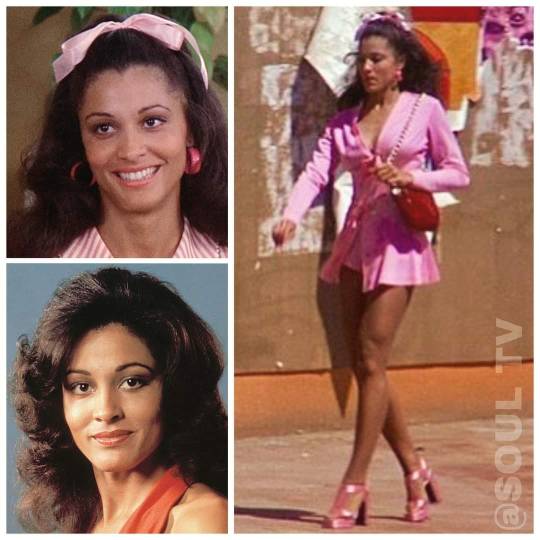
Happy Birthday to actress Tracy Reed.
Born October 28, 1949, She appeared in the TV series Love, American Style (1969–70, 1972–74), co-starred in the 1970 TV series Barefoot in the Park and played Virginia Tyndall in the 1979 TV miniseries Women in White.
Her most memorable film roles include No Way Back (1976), Car Wash (1976), A Piece of the Action (1977), ...All the Marbles (1981) and Running Scared (1986).
In 1971, the California Press Photographers Association named Reed the Most Beautiful Face in Television.
7 notes
·
View notes
Text
they'll never make glorious trash quite like 70s/80s tv event miniseries
9 notes
·
View notes
Text
I'm only just getting into Yuki 7, but one thing I really like about it that's now really definite is how it's still a fictional franchise, now with an expanded timeline/history.
In the '60s, Yuki 7 was a straightforward spy-fi film series (not actually, to be clear, at first it was a pair of art books with this fictional history and tie-in animated trailers done within 2009-2011).
Then, the first microseries seems to come across as if it was revived as all-family TV show in the '70s (actually just a few years ago) with more sci-fi elements like a robot turtle, dinosaurs, and a talking cat.
And now it's confirmed the upcoming miniseries Hotel Kolkata 'aired' in 1981.
I don't know what the point of this post is, just that fictional TV history stuff like that really appeals to me and I wish I can own those art books.
#yuki 7#spy-fi#animation#it was unreality before goncharov#1960s#1970s#1980s#it's also why I highly respect Welcome Home I love the idea about making up lost shows#a fun thing about writing my spin-off novel is that I get to do something like this with a fictional musician created in the real '60s
8 notes
·
View notes
Text

Sally Field in Norma Rae (Martin Ritt, 1979)
Cast: Sally Field, Beau Bridges, Ron Leibman, Barbara Baxley, Gail Strickland, Morgan Paull, Robert Broyles, John Calvin. Screenplay: Irving Ravetch, Harriet Frank Jr. Cinematography: John A. Alonzo. Production design: Walter Scott Herndon. Film editing: Sidney Levin. Music: David Shire.
If Norma Rae were made today, it would have to end with the owners closing the textile mill after the pro-union vote and shipping the jobs to Sri Lanka. Only two years after the movie was released, Ronald Reagan fired the striking air traffic controllers, giving impetus to the anti-union movement that persists to this day. Which is not just to say that Norma Rae is dated -- it was a bit that way at the time -- but that it persists in the memory largely because of Sally Field's breakthrough performance. It won her her first Oscar, and a well-deserved one: She carries the movie as few actresses have done before or since, freeing her from the trap that the TV series Gidget (1965-66) and The Flying Nun (1967-70) had caught her in. She had proved herself with the 1976 TV miniseries Sybil, for which she won an Emmy, but nothing demonstrated her ability to hold an audience in her grasp like Norma Rae. The screenplay by Irving Ravetch and Harriet Frank Jr. also earned an Oscar nomination, but it's scattered and sketchy, only touching lightly on the many elements of union organizing in the South -- racism, political chicanery, violence -- which are probably more important to understand than what the film focuses on: the grit and determination of one young textile worker and one stereotypically lefty Jewish organizer (Ron Leibman).
8 notes
·
View notes
Text
Sunday night I watched part of this '70s TV miniseries called Moses the Lawgiver cause it was on one of the broadcast channels I get. I had dim memories of watching it once before when I was little, that was a super-long time ago and I don't remember much of it from then but I remember even then thinking it was interesting to compare and contrast it with The Ten Commandments, and I very much had that opinion affirmed watching it as an adult, they take very (interestingly) different approaches. Last night I missed the plagues part of Moses the Lawgiver which might have had more overt supernatural elements (I did watch that part when I watched it as a kid but my memories of it are very fragmentary) but in the parts I watched last night (about the wanderings in the wilderness) their depiction of Moses felt very ratfic protagonist-y, his authority did not derive primarily from anything supernatural but from being smart and having learned about the land they were passing through in his first exile from Egypt so he could predict where and when food and water could be found and danger would appear and from having a Big Idea and being charismatic. I respect how the filmmakers seemed very interested in exploring both the good aspects of that kind of person and the bad/dark side, Moses is depicted as a genuinely noble (in the most complimentary sense of the word) person in a lot of ways and I could definitely see how they were trying to keep him relatively sympathetic to a modern audience, but he also has somebody stoned to death for gathering wood on the Sabbath and is just frankly and unashamedly like "The Promised Land is probably going to have people living in there and we're going to have to make war on them to take their land," he is emphatically not straightforward heroic (or, like, maybe he is, but in the older sense of the word, where a hero isn't necessarily a good person).
Seems like a film a lot of people here may be interested in!
6 notes
·
View notes
Note
have you ever read the father brown books? i've just started on the first one and like. there's some fun flambrown content if you're into that
i say "if" as if you don't plaster flambrown content across my dash every day dkfhfjd
(I typed a whole long answer and it refused to post so I've attempted to retype ashorter less rambly version of the original post 😭😭)
OH BOY
WHAT A SILLY QUESTION
I'm more into the books than the show, and I've consumed every single TV, film, and radio adaptation! Even the ones in German and Italian! Even though I don't speak a word of Italian! My blog header on mobile is actually Flambeau from the 70s Italian miniseries!
I'm also Aristide Valentin stan no.1, he's my poor little meow meow, I literally spent weeks researching pre-WW1 maps of London to try and figure out the route Valentin took from Liverpool Street to Hampstead Heath so that I could go on my own trip and follow in his footsteps. And literally no onscreen adaption has ever done him properly. 😭😭 The radio adaptations are better in that regard.
The 1984 BBC radio adaptation is the one and only adaptation that even pronounces Valentin's name properly. Coincidentally it's also the only adaptation to have an actual Frenchman on the cast. 😂 To by best count, Flambeau has been played by 3 Englishmen, 3 Americans, an Italian, a Welshman, a Hungarian, an Austrian, a German, and one (1) actual Frenchman.
As far as adaptations go, the 1974 TV series and the 80s and 00s radio adaptations are both the best as faithful adaptations, and the gayest, though the 1934 movie has a very special place in my heart. It has low budget early Hayes code charm. I love the flat painted London backdrop and the milk in wine glasses. I love the doggy and I love obviously Hungarian Flambeau because early hollywood just thought "as long as he sounds foreign".
But honestly every adaptation has something I love about it, even the really weird ones. You have to check out the failed pilot for an American modern day adaptation set in New York made in the early 80s sometime. It's barely recognisable as Father Brown but it's a lot of fun. Flambeau isn't in that one but Father Brown does have a dog which is nearly as good.
But I do hope you enjoy the books! The Secret Garden, The Invisible Man, and The Eye of Apollo are my favourite FB book stories by MILES
14 notes
·
View notes
Text
Review Double Feature: Dune (2021) and Dune: Part Two (2024)
Dune (2021) and Dune: Part Two (2024)
Rated PG-13 for sequences of strong violence, some disturbing images and suggestive material (Part One)
Rated PG-13 for sequences of strong violence, some suggestive material and brief strong language (Part Two)
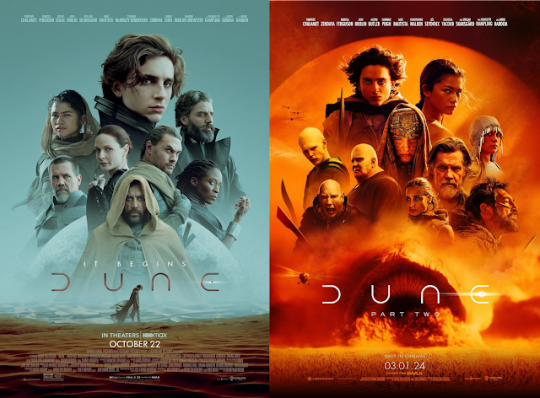
<Originally posted at https://kevinsreviewcatalogue.blogspot.com/2024/03/review-double-feature-dune-2021-and.html>
Score: 4 out of 5
Yep, we're doing the Kill Bill thing again and grading two movies together as one singular whole. And that's because, much like Kill Bill, this is no ordinary pair of movies. Rather, they're a two-part adaptation of the absolute monster of a novel that is Frank Herbert's Dune. A landmark of science fiction, it is no pulpy airport paperback, clocking in at 896 pages and covering everything from the ecology of a desert world to the use of religion as a tool of control to the fall of empires to the nature of power to a deconstruction of "chosen one" mythologies and everything in between. It's a novel that typically comes up on shortlists of the greatest science fiction novels of all time, one that's been compared to J. R. R. Tolkien's The Lord of the Rings trilogy in fantasy in the canon of modern speculative fiction. (Ironically, Tolkien disliked Dune, though he didn't really say why in the interest of remaining diplomatic.)
It's not a book you take lightly, is what I'm saying.
What's more, the very things that have made it so tempting to adapt to the screen are the same things that have long given it a reputation as "unfilmable". Attempts to make a movie out of it have bedeviled nearly every filmmaker who's tried, including some of the greatest of the modern age. David Lean was offered the film, but turned it down. Alejandro Jodorowsky tried to adapt it in the '70s and failed. David Lynch actually managed to get his movie made back in 1984, producing a film that's widely remembered, not least of all by Lynch himself, as a psychedelic mess. The Sci Fi Channel produced a miniseries in 2000 that faithfully adapted the text of the book and, despite a very large budget for a TV show at the time and a huge marketing push, proved to be just as divisive among sci-fi fans. Its influence wound up coming less through its own adaptations and more from other authors and filmmakers inspired by it to make their own, less categorically weird stories, including a number of films that emerged directly from the ashes of Jodorowsky's abortive production. (You might've heard of a few of them, like Alien, The Fifth Element, Warhammer 40,000, and even Star Wars.)
So when Canadian filmmaker Denis Villeneuve decided that he wanted to adapt Dune, many critics, film journalists, and fans predicted it would be his Waterloo. Sure, he's a modern wunderkind who's never made a bad movie, up there with Christopher Nolan as a darling of today's film buffs (and, in my opinion, one who has a better track record). Sure, he'd already done the impossible by making a sequel to Blade Runner, one of the greatest science fiction films of all time, that was just as good as the original. But if Jodorowsky and Lynch couldn't do it, then how in the world was Villeneuve, somebody whose background was chiefly in gritty, spectacle-light thrillers like Prisoners and Sicario, going to pull off adapting a novel as famously trippy as Dune?
What Villeneuve did was largely stick to the text of Herbert's novel as the miniseries did, cut a lot of the backstory and many of the psychedelic elements, and instead focus heavily on both the ecological themes of the story and the events of its present, especially its political subtext and its commentary on "chosen one" narratives. What emerges is a film duology that feels like a dark retelling of Star Wars (or at least A New Hope) in which the story of Luke Skywalker, instead of a tale of a straightforward hero saving the day, is instead a tale of the rise of the Antichrist -- and, incidentally, a far better take on the idea of "what if the chosen one turned out to be the bad guy?" than the Star Wars prequel trilogy. It's not a perfect adaptation, and honestly, I'm still not sure if a "perfect" adaptation of a novel like Dune is even possible outside of a miniseries. (Jodorowsky's version would've been ten to fourteen hours long.) But whether I was watching it at home on a big-screen TV (as I did with Part One to get caught up) or in a packed movie theater (as I did with Part Two), I got a gorgeous, compelling, slow-burn sci-fi epic filled with a rich cast of complicated characters that sets up even bigger things to come but still ends in just the right way, without a doubt the best adaptation of Herbert's novel so far and one that I expect to endure in the canon of science fiction classics just like the novel.
Our story starts over eight thousand years into the future, with humanity ruled by the Imperium, an empire in classic medieval fashion where power is divided between the Emperor and the various Great Houses of the nobility. Arrakis, a harsh desert planet that is strategically vital for its supply of spice, a drug that is necessary for faster-than-light travel to be possible, has just been transferred by the Emperor from the control of House Harkonnen, which ruled it for decades, to House Atreides. The Atreides patriarch Duke Leto knows that this is a power play by the Emperor to thwart the growing power of his family, as control of Arrakis paints a giant target on their backs for other families to go after, not least of all a bitter House Harkonnen, but he also knows that he can't openly defy the Emperor's wishes and turn down this white elephant of a gift. Sure enough, exactly what he feared comes to pass. However, when House Harkonnen took back the planet, they didn't count on one man: Paul Atreides, Leto's teenage son, who survives the initial attack with his mother Lady Jessica and runs off into the desert to live with the Fremen, the tribal native people of Arrakis who have always resented the power of outsiders over their world, and plots revenge. Unbeknownst to Paul, however, a secretive religious order called the Bene Gesserit, one that includes his mother, has plans for him, and has set in motion events that will lead to his rise as a mythical savior of humankind called the Kwisatz Haderach... but unbeknownst to the Bene Gesserit, Paul, who's been having visions of himself causing a galaxy-scale spree of death and destruction, has his own ideas as to what kind of man and leader he's going to be.
The first film opens with Chani giving a vivid description of the beauty of the desert ecosystem of Arrakis, and it's clear that the environmental themes of the story were where a lot of Villeneuve's attention lay. He keeps the exposition indirect in order to fit as much of the book into five-plus hours as he can, instead preferring to show us how the world functions: a mouse-like alien creature wiping the sweat off its ear and drinking it again, the fact that nearly all of Arrakis' human development is either underground or otherwise shielded from the brutal sun, the human population being consequently nocturnal, the status of mountains and large rocks as islands of safety amidst the sea of dunes and its terrifying sandworms, fresh water being a resource as precious as gold. This short of "show, don't tell" exposition extends throughout the story. We don't need to be told that the proliferation of personal protective force fields that only slow-moving objects can get through has made guns obsolete in industrial warfare and led to a revival of melee infantry weapons like swords, pikes, and daggers, nor do we need to be told that, against the Fremen who don't have those fancy shields, guns are still very useful. We can figure that much out just by watching how these devices function and figuring out the implications, and then doing the same with all the other neat stuff about the worldbuilding. In the book, Herbert explained the setting's retrofuturism and lack of computer technology with a lengthy backstory about a war between humans and AI called the Butlerian Jihad in which humanity's victory was followed by a thorough backlash against "thinking machines". None of that makes it into the movies, but it didn't really need to, not when the films do an expert job of crafting a society that thinks it's too good for computers, and not when it's resting on the visual shorthand of countless past space opera flicks like Star Wars. A rare case where the fact that the source material has inspired countless great movies actually works in the favor of its own adaptation, letting it spend less time on the parts of the worldbuilding that we've all seen before and instead focusing on the parts that stand out from the pack.
And the part here that stands out is a big one. Over a decade before George Lucas played a "chosen one" sci-fi story pretty much straight (and over three decades before he made the prequels as a deconstruction of such), Herbert wrote a story that portrayed prophecies, Great Man narratives, and organized religion as tools that could be easily exploited by a tyrant. Paul Atreides may have meant well, hoping to liberate the Fremen from tyranny, but by inserting himself into their struggle (with help from shadowy figures who had their own agenda in paving the way for his reign), he built something terrible, and the psychic visions he has throughout the story make it clear that his accomplishments will end in tragedy. Timothée Chalamet plays Paul initially as a rich kid struggling with the pressure placed on his shoulders, one who takes to Arrakis astoundingly well to the point that, when he's forced to leave his safe and secure life at the palace, he winds up comfortably integrating right into the Fremen's society. Throughout the films, we get hints of darkness within him, especially in Part Two once he starts delivering bombastic speeches to enraptured crowds that at some point start to sound uncomfortably like the speeches that the villains normally give in these sorts of movies. Even more than the psychic visions he has of the death and destruction to come, it was in these moments when I was both captivated by Paul's power and, more importantly, scared of the kind of leader he was growing into: a harsh, unforgiving warlord who's willing to resort to extreme measures to secure the independence of the Fremen. He's an easy guy to root for, but there's always a pit in your stomach as he slowly but surely pushes the boundaries right up to the breaking point. It's here where Chani, her role considerably expanded from the books, emerges as the film's voice of reason, serving as Paul's lover but also somebody who realizes that the Fremen are trading slavery at the hands of a colonial overlord for slavery at the hands of a cult leader, even without knowing the behind-the-scenes machinations that put Paul in his position.
That said, if it wanted to completely stick the landing here, there was one final shoe that needed to drop but didn't. Paul's psychic visions merely show him ominously as a leader with Hitler-esque undertones, as well as him in battle. The book went a lot further when it came to having Paul's visions showing him with far more than just undertones, sketching vivid displays of the misery that he is fated to cause: famine, genocide, the apocalypse on a galactic scale. What the films show us is designed to make us uneasy about Paul, while letting Chalamet's performance do the rest in making him look like a budding villain, but there's a point where "show, don't tell" can be taken too far, and that's when you're talking about prophecies of disasters to come that you can't linger on for too long in the film itself and can only tell us will happen. I was only a bit freaked out by Paul, when I should've been picturing myself in Germany in 1933. I was getting all the cool and badass parts of a great villain, but the things that actually make him a villain are still to come, and that, I think, undercut some of the menace and unease I was supposed to get from Paul. It wasn't a huge problem, but it was still a not-insignificant blotch on what's otherwise a great pair of films.
Fortunately, once you're past the plot, as a sci-fi epic this duology is gorgeous to behold. Villeneuve has always been a guy who, like Christopher Nolan, has an affection for gritty realism even when he's working with big blockbuster epics, and he made the most of the desert environments that give the story its name. He does a great job in particular imagining what big melee fantasy battles would look like augmented with futuristic technology, in which the pikemen and knights charging their enemies in the field are supported with artillery lasers. The cast is absolutely stacked and excellent all around, with Chalamet shining in the central role but everybody around him also doing great work, from Zendaya as the skeptic Chani to Rebecca Ferguson as Paul's mother with her own agenda to Austin Butler stealing the show in a surprisingly brief amount of screen time as the Emperor's depraved nephew who gets sent in in Part Two to stop Paul. It was perhaps a bit overstuffed; Florence Pugh wound up getting lost in the shuffle, not an easy feat with an actor of her caliber. I understand why Villeneuve decided to split this movie in half, because there is no real way this story could've been effectively told otherwise.
The Bottom Line
Villeneuve accomplished an impossible task here, crafting with two movies an adaptation of a legendarily dense novel that does it justice. This one has its faults, and there are things that the otherwise inferior Lynch version does better (especially with regards to its psychedelic elements), but even so, it is gonna go down in the ranks of all-time sci-fi classics. I give it a solid recommendation if you have even the slightest interest in science fiction.
#dune#dune part one#dune part two#2021#2021 movies#2024#2024 movies#science fiction#sci fi#denis villeneuve#timothée chalamet#zendaya#rebecca ferguson#oscar isaac#josh brolin#stellan skarsgard#dave bautista#jason momoa#javier bardem#austin butler#florence pugh#christopher walken#lea seydoux
3 notes
·
View notes
Text
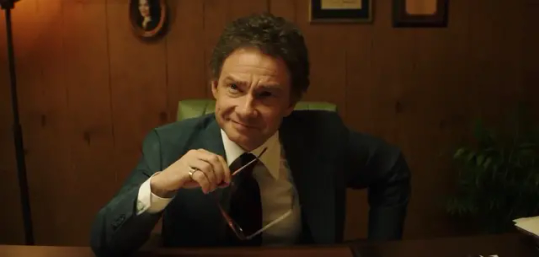
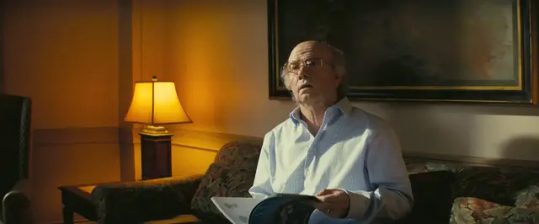
Martin Freeman (70/366)
Angelyne (2022)
TV miniseries
Dirección
Matt Spicer
Lucy Tcherniak
Created
Allison Miller
Nancy Oliver
Writer
Gary Baum
Allison Miller
Nancy Oliver
Nora Mariana Salim
Brendan Kelly
Andy Siara
Cara DiPaolo
An unauthorized limited series based on the Hollywood Reporter’s investigative article about Angelyne, L.A.’s mysterious billboard icon.
2 notes
·
View notes
Text
Kind of an open question to ppl in the classic rock/folk rock/dad rock whatever fandoms.
Something I always notice people in these fandoms do is create oc bands/musicians from decades ranging from the 60s,70s,80s, 90s, even early 2000s. I think out of everything it is the thing I find most creative and unique about these fandoms compared to other “music stan” communities out there.
On that note, there are also a lot of, what I would call, mainstream fictional bands and musicians which are from widely recognized books, films, tv shows, etc. One of these recent additions that has been gaining popularity is the Daisy Jones & The Six miniseries. I’ve been seeing a lot of mixed responses towards it, especially from people within the classic rock fandom, and its been making me curious:
What do you guys consider good twentieth century inspired fictional music acts? Where do mainstream ones fall flat? Do you look for accuracy and realism or do you think the focus should be elsewhere? What mainstream fictional bands do you find are done the best? The worst? I am very curious about this.
#sorry for all the text I have no clue how to ask this question actually#personally I am not that interested in the daisy jones miniseries but if anyone has thoughts on it I'd love to hear it!!#but yeah I do tend to find myself dissatisfied with fictional bands in most movies and tv shows#to me it always feels like the writers/creative team only know stereotypes about the time period and just didn't do enough research#or it just feels so othering like the time period is another dimension rather than one that is capable of being shared to human experiences#today#classic rock fandom#squack
13 notes
·
View notes
Text
Morto David Soul, il detective Hutch della leggendaria serie tv “Starsky & Hutch”

La coppia di detective è diventata un'icona della cultura popolare, e il successo dello show ha contribuito significativamente alla fama di Soul
David Soul, nato David Richard Solberg, è stato non solo un volto iconico della televisione, ma anche un talentuoso cantautore e regista nel corso della sua carriera. Oltre al suo ruolo indimenticabile in “Starsky & Hutch“, Soul ha recitato in altre produzioni di successo come Star Trek e “Una 44 Magnum per l’ispettore Callaghan” con Clint Eastwood. L’attore statunitense è deceduto giovedì 4 gennaio, lasciando un vuoto nel cuore dei suoi fan e nel mondo dello spettacolo. La moglie ha comunicato che Soul ha affrontato con coraggio la sua battaglia per la vita circondato dall’affetto della famiglia.

La carriera di David Soul è stata versatile e apprezzata. Inizialmente, ha intrapreso la strada della musica folk, esibendosi insieme a grandi nomi come Frank Zappa e i Byrds. Tuttavia, è stato il passaggio alla recitazione che lo ha portato alla ribalta, con ruoli in telefilm di successo negli anni ’60 e ’70. Il clou della sua carriera è stato, senza dubbio, il ruolo di Hutch accanto a Paul Michael Glaser in “Starsky & Hutch“. La coppia di detective è diventata un’icona della cultura popolare, e il successo dello show ha contribuito significativamente alla fama di Soul.Negli anni successivi al successo televisivo, Soul ha continuato a stupire il pubblico tornando alla musica, raggiungendo la vetta delle classifiche con brani come “Don’t Give Up On Us” e “Silver Lady”. Nonostante le sfide personali, tra cui un periodo di incarcerazione negli anni ’80 per aggressione alla moglie di allora, Patti Carnel Sherman, Soul è riuscito a rialzarsi e a contribuire ancora al mondo dell’intrattenimento.
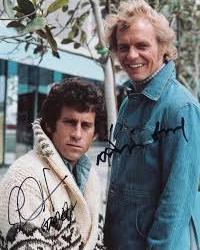
David Soul, known for playing the iconic detective Kenneth Hutchinson of the duo Starsky and Hutch, has died at the age of 80. The American gossip magazine TMZ broke the news. He was born in Chicago but had English citizenship. In addition to the popular TV series also "Salem's Lot", "Star Trek" and the cult "A 44 Magnum for Inspector Callaghan" alongside Clint Eastwood.
How David Soul died
David Soul died on Thursday in a hospital in London following a battle with cancer. According to what was reported by TMZ, the actor had been suffering from it for some time as well as numerous health problems suffered in old age. In particular, David Soul suffered from chronic bronchopneumonia, due to more than 50 years as an avid smoker: "he smoked three packs of cigarettes a day", says the newspaper.
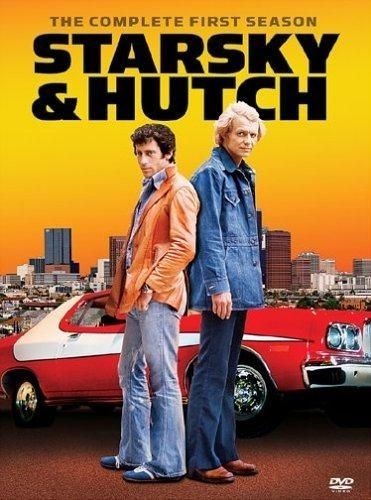
The career of David Soul
David Soul became an absolute pop icon in the 70s thanks to Starsky and Hutch. He was the blond-haired, icy-eyed detective next to Detective Dave Starsky, played by Paul Michael Glaser. David Soul appeared in all 92 episodes of the series, spanning a four-season span from 1975 to 1979 and also directing some episodes. Other popular shows also include "Salem's Lot", the first miniseries based on the novel of the same name by Stephen King and directed by Tobe Hopper in which he played the protagonist Ben Mears and which in Italy was released with the title "The Last Days of Salem ", merged into a single 112-minute version. Before his great popularity with the series, he had gained recognition in the role of Agent Davis in the film A 44 Magnum for Inspector Callaghan. David Soul had also established himself as a singer by releasing five studio albums and seven collections between 1976 and 2020
#starsky and hutch#80's#detective#serie tv#action#hutch#dave starsky#starsky#david soul#kennet hutch
3 notes
·
View notes